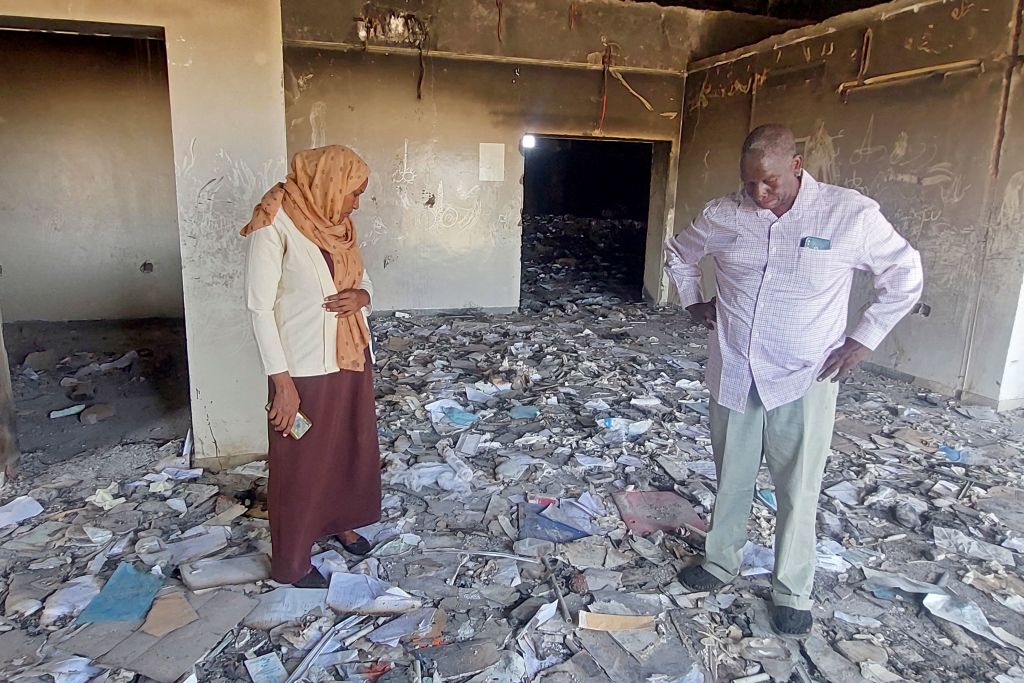ADF STAFF
Dozens of people were killed and crucial infrastructure such as water, electricity and communication lines was damaged after days of fighting in Nyala, the capital of South Darfur, and nearby areas in mid-August.
The Darfur Bar Association said the attacks were carried out by Arab militias driving vehicles supplied by the Rapid Support Forces (RSF). The attacks targeted a rival Arab group rather than non-Arabs. Several Arab groups have pledge allegiance to the RSF.
Darfur’s violence — typically between Arab and non-Arab ethnic groups — has been fueled by the fighting that broke out in April between the Sudanese Armed Forces (SAF) and RSF. It has reignited ethnic-driven fighting in the Darfur region that threatens to spill over into neighboring Chad, which shares many ethnic ties to Darfur.
The bar association has urged Darfuris to steer clear of the fight between the RSF and SAF. “We call on all elements not to get dragged into the conflict whose aim is power in the center of the country,” the bar association said in a statement.
Battles across Darfur have killed thousands of people and driven hundreds of thousands more to seek refuge in Chad. El Geneina, the capital of West Darfur and once a city of 500,000 people, largely has been destroyed and is all but deserted. In July, a mass grave containing nearly 90 bodies of Masalit and other non-Arab people, including women and children, was discovered outside the city.
The Darfur region is home to a mix of Arab and non-Arab ethnic groups such as Rizayqat Arabs along with non-Arab Masalit, Eringa, Gimir, Misseriya Jebel and Zaghawa groups. Many of those groups straddle the porous border between Darfur and neighboring regions of Chad, leading experts to worry that ethnic violence in Sudan could spread.
Darfur is the headquarters and home base of the RSF, which evolved from the Janjaweed, the group of Arab fighters created 20 years ago to put down a rebellion by non-Arab populations against dictator Omar al-Bashir.
After Gen. Abdel Fattah al-Burhan, head of the SAF and de facto ruler of Sudan, and Gen. Mohamed Hamdan Dagalo, known universally as Hemedti, launched their war for military supremacy in the Sudanese capital, Khartoum, fighting began again between Darfur-based elements of the RSF and its allies and the non-Arab groups such as the Masalit and the Arab Fur people. The fighting accelerated as al-Burhan supplied non-RSF groups with weapons.
Gen. Hemedti, who has familial ties to Darfur, has drawn on fellow members of his Rizayqat Arab ethnic group to serve as the core of the RSF. A rival of Hemedti, former Janjaweed member Musa Hilal, comes from a different clan within the Rizayqat and has been recruited by al-Burhan to oppose Hemedti on his home turf.
Analysts believe that if the RSF fails to defeat the SAF in Khartoum, Hemedti could retreat to his stronghold in Darfur. In that case, al-Burhan would need allies such as Hilal to root out Hemedti.
Darfur’s non-Arab Masalit population has been specifically targeted by RSF fighters and their allies. Masalit people fleeing the violence have been blocked from crossing into Chad. Fighters killed Khamis Abakar, the Masalit governor of West Darfur.
However, West Darfur administrator Salih Hasan recently told Radio Dabanga that Masalit are not the only people targeted by the RSF and its allies in Darfur.
“All ethnicities that did not join the Janjaweed are targeted, which forced most of them to seek refuge in Chad, including Arab tribesmen,” Hasan said.
Army spokesperson Brig. Gen. Nabil Abdullah told Reuters that the killings by RSF fighters and their allies should be considered war crimes.
“This rebel militia is not against the army but against the Sudanese citizen, and its project is a racist project and a project of ethnic cleansing,” Abdullah said.

